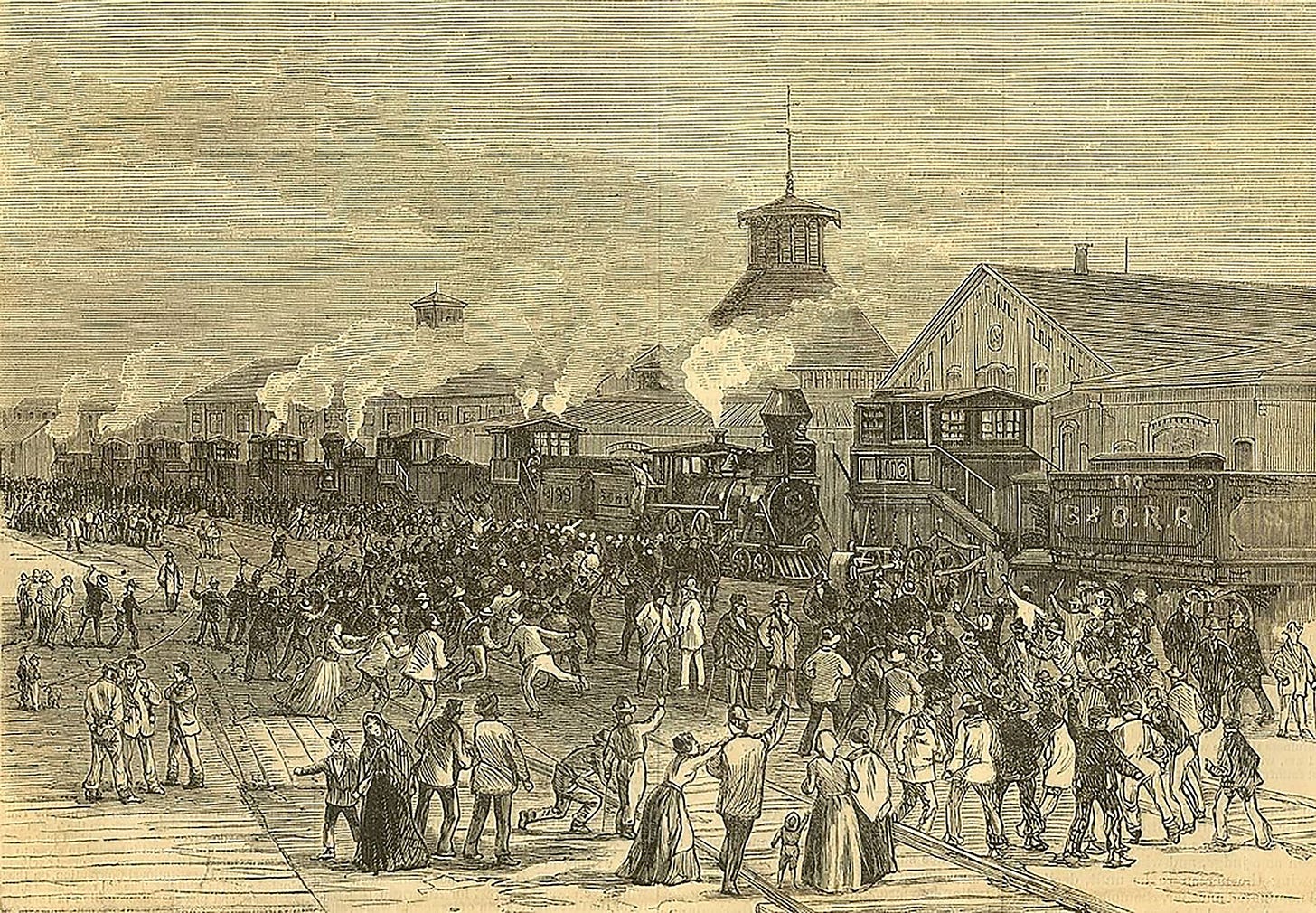The woke moment is giving short shrift to labor
You want life to get better for the proles? Give them the means to fight back.

Some years ago, I tried to sell a succession of liberal think tanks on the idea of my creating a research project on how to revive labor unions. I thought this was a can’t-lose proposition. The decline of organized labor, I noted in my pitch, was the most difficult single problem facing American liberalism, and the one that liberals were most reluctant to face. Labor’s decline was an important cause—probably the most important cause—of the rise in income inequality that began in the late 1970s and continues unabated today. How to revive labor was a question for which I had no ready answer. Nor did anyone else I knew. But that, I argued, was an advantage! It meant that I’d be diving into this project with a completely open mind, and that whatever conclusion I reached was guaranteed to break new ground.
Every place I made this pitch, the answer was a polite “no.” Finally a sympathetic think-tank pooh-bah explained why. “Liberal think tanks are different from conservative think tanks in almost every conceivable way,” this person said. “But in one way we are both alike. Like conservative think tanks, we are funded by rich people who loathe and detest labor unions.”
In recent years, the left has been much more interested than centrist liberals in how to revive labor. But even on the left, the plight of labor is maybe the fifth or sixth agenda item. Partly this is because the class-based critique of equality in America is seen as competing with, and creating a distraction from, critiques of equality based on race, gender, and sexual orientation. Partly too, the downplaying of labor is based on an understanding that labor unions have in the past sometimes been inhospitable to Blacks, to women, and to LGBTQ individuals. In some ways, unions continue to fail these groups. They aren’t much help in policing sexual harassment in the workplace, even though the two industries that have generated the biggest harassment stories—TV news and Hollywood—are both heavily unionized. Police unions, meanwhile, have worked to blunt reforms intended to make police departments more accountable for their routine violence against African Americans.
This last is a reminder that unions are not intrinsically good, any more than managers are intrinsically evil. They are merely necessary to preserve some balance between the interests of capital and the interests of labor. To paraphrase James Madison, if CEOs and corporate boards and the stockholders they serve (or purport to serve) were angels, no labor unions would be necessary. But of course they aren’t—not by a long shot—and so “ambition must be made to counteract ambition.” When it doesn’t, you end up with stagnating wages, a shrinking middle class, and employers who enjoy virtual carte blanche to, for example, force workers to work in slaughterhouses even when the risk is high that they will contract a deadly disease. (Yes, many of those workers are unionized, but when union density is low nationwide individual labor unions grow weak.)
We take for our text an essay from the comparatively woke editorial board of the New York Times, “America Needs Some Repairs. Here’s Where To Start.” The piece ends with a handy clip ‘n save checklist that includes such worthy items as “Provide universal pre-kindergarten for 4 year-olds” and “Increase the minimum wage to $15 an hour.” But somehow the editors forgot to include “strengthen the ability of workers to join labor unions.” It’s not like there isn’t any legislative vehicle for doing so. Way back in February, the House passed the Protecting the Right to Organize Act, which would eliminate various obstacles to organizing, many of them dating back to the 1947 Taft-Hartley amendments to the Wagner Act. Emily Bazelon wrote a good piece about this for the Times Magazine around the same time. I imagine if I looked hard enough I’d find a Times editorial endorsing the PRO Act around then, too. But when it comes time to think big thoughts about how to help the American worker, ushering that worker into a labor union slips the Times’s mind.
That’s of a piece with the Times’s coverage of labor unions, which has grown infrequent since Steven Greenhouse retired at the end of 2014. Greenhouse’s replacement Noam Scheiber is a fine labor reporter, but his dispatches appear infrequently, and seldom in the A section, presumably because the word “unions” makes top editors’ eyes glaze over. Labor has become an unfashionable beat, and while the rise of online media has increased coverage somewhat, the big papers still mostly avoid the subject, preferring instead to think more broadly about “the future of work.” Which is fine, except that future seldom seems to include organizations—call them whatever you like—that represent the interests of actual workers.
So thank goodness for Greenhouse, who six years into his “retirement” is still very much on the case, sometimes even in the pages of the Times. In the summer issue of Dissent Greenhouse reviews the obstacles workers have faced asserting their rights during the coronavirus pandemic, noting a few silver linings to this dark cloud. Labor unions are more popular among the public than they’ve been in 50 years. Adjunct professors, journalists, nurses, and workers in the new cannabis industry are unionizing at a decent clip. And Democratic candidates have been talking up labor to an extent that we haven’t seen in decades. Still, if we are to have a Great Awokening in America, the Times and the marchers need to do more to wake up and nourish the half-starved Rip Van Winkle that is the labor movement.




Nice piece.